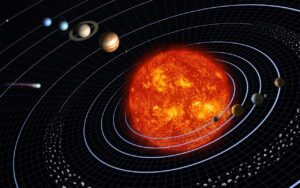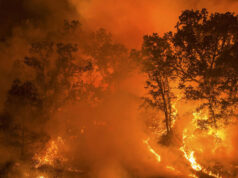The Chronicles of Earth
Once upon a time, in a vast and mysterious universe, there existed a beautiful blue planet called Earth. It floated gracefully in the cosmos, surrounded by shimmering stars and other celestial wonders. On Earth, life began to take root, and over billions of years, it evolved into an incredible diversity of species, each with its own unique characteristics and traits.
In the beginning, the Earth was a primitive world, with vast oceans and barren landscapes. But as eons passed, the first signs of life appeared in the form of microscopic organisms. These tiny creatures thrived in the ancient seas, laying the foundation for all life to come. As time marched on, evolution continued to weave its magic, leading to the rise of larger and more complex organisms, such as fish, reptiles, and dinosaurs.
The reign of the dinosaurs was spectacular but came to an abrupt end when a colossal asteroid struck the Earth. This catastrophic event triggered massive global changes, wiping out the dinosaurs and leaving room for the rise of new life forms. In the wake of this calamity, small mammals emerged from the shadows, adapting to their changing environment.
Over millions of years, these small mammals grew in size and intelligence, eventually evolving into the dominant species of Earth – humans. With their ability to think, create, and communicate, humans began to shape the world around them. They built civilizations, constructed incredible structures, and developed complex societies.
Yet, as humans thrived, they also faced challenges. Their relentless pursuit of progress sometimes led to conflicts and destruction. They began to realize that their actions had consequences not just for themselves but also for the delicate balance of nature.
One of the most profound challenges faced by humanity was their impact on the planet’s environment. As they continued to advance, they unknowingly disrupted the Earth’s delicate ecosystems, causing climate change and endangering numerous species. However, in the face of adversity, some humans recognized the urgency of protecting their home.
Scientists, activists, and concerned individuals around the world united to address these environmental issues. They promoted renewable energy, sustainable practices, and conservation efforts to safeguard the planet’s future. Governments and organizations collaborated on global agreements, recognizing the importance of working together for the well-being of Earth.
As time went on, the human race began to embrace a more sustainable way of living. They turned to renewable energy sources, reduced waste, and focused on preserving biodiversity. Through perseverance and collective action, they managed to reverse some of the damage done and restored hope for Earth’s future.

Alongside these efforts, Earth became a hub of scientific exploration and discovery. Humans explored the cosmos, seeking to understand the mysteries of the universe. They established colonies on the moon and even sent missions to other planets in search of life beyond their home world.
With their newfound understanding and cooperation, Earth thrived in harmony with its inhabitants. Humans and nature coexisted, each contributing to the well-being of the other. The planet became a beacon of hope and inspiration for other civilizations across the universe.
As the story of Earth continues to unfold, it serves as a reminder of the importance of cherishing and protecting the home we all share. Its legacy lives on, etched in the stars, guiding future generations to be guardians of this precious blue planet for millennia to come.











